One Swiss heads to Libyan jail, one heads home
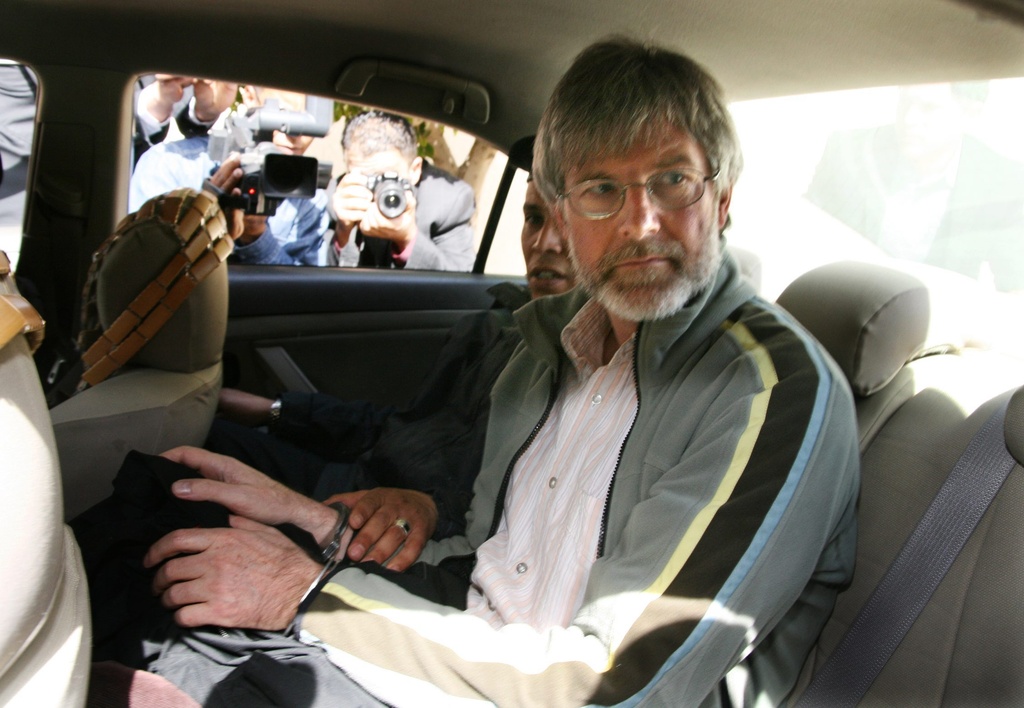
One of two Swiss nationals held in Libya for the past 18 months has left the Swiss embassy in Tripoli to start a four-month jail sentence.
Businessman Max Göldi handed himself over to the authorities on Monday afternoon and was taken to prison in handcuffs.
Rachid Hamdani, the other Swiss national who had been held with Göldi, has received his exit visa. However, he was still in Tripoli on Monday evening.
His wife told French-language Swiss radio that she had spoken to him at 5:40pm Swiss time and he had informed her he had left the interior ministry, but had to go to the foreign ministry to settle further administrative formalities before he could leave the country.
He had not been able to tell her when he would leave Libya, nor how, but she said he sounded confident.
The Swiss foreign ministry confirmed to the media that Hamdani was still in Tripoli.
It had earlier been reported that he had been driven to the Tunisian border.
European solidarity
Göldi’s surrender avoided escalating a confrontation that has drawn in governments across Europe.
Several dozen Libyan police officers had formed a ring around the Swiss embassy where the two businessmen had taken refuge for several months.
The night before, Libyan Foreign Minister Moussa Koussa summoned European Union ambassadors to hand them an ultimatum demanding that Göldi be handed over by midday.
“No embassy should become a haven from justice,” Koussa told the Associated Press late on Sunday. “I hope this will not force us to adopt other measures.”
Speaking in Brussels, where he was attending a meeting of his EU counterparts, Austrian Foreign Minister Michael Spindelegger said many EU ambassadors in Tripoli had gone to the Swiss embassy “to show solidarity”.
“Last night there were many intense phone calls,” Spindelegger told reporters. “It was announced there was a deadline – either hand over the convicted Swiss citizens or the embassy would be stormed.”
The Italian foreign minister, Franco Frattini, said his prime minister, Silvio Berlusconi, had called Libyan leader Moammar Gaddafi personally in the middle of the night, urging him to find a solution.
Human rights
The Swiss foreign ministry confirmed Göldi had been taken into Libyan custody and said Swiss embassy and diplomatic representatives of the EU were in permanent contact with him.
Koussa said Göldi would be treated well. His lawyer, Salah Zahaf, said he intended to submit a plea for clemency on Tuesday.
Human rights groups have sharply criticised Libya, calling Göldi’s sentence politically motivated.
“Although Libya says it is a judicial matter, the crisis must be resolved by diplomacy,” said Heba Morayef of Human Rights Watch (HRW).
The Ain Zara prison where Göldi is to carry out his sentence is notorious for the arbitrary detention of political opponents, HRW reported last December.
Amnesty International said it was launching an “urgent action” appeal for Göldi’s immediate release.
Mediation
The case of the two men has been at the centre of a fierce diplomatic row between Libya and Switzerland for the last 18 months. It stems from the arrest of one of Libyan leader Moammar Gaddafi’s sons in Geneva in July 2008, on charges of mistreating two of his servants.
The Libyans took a number of measures against Swiss interests, and had prevented both Swiss nationals from leaving the country since that time.
The two were charged with visa violations and conducting business in the country illegally. Last month Hamdani was acquitted of the first charge on appeal, and found not guilty of the second. Göldi’s initial sentence of 16 months on the visa charge was reduced to four on appeal. He was fined on the second charge.
After Libya went back on assurances given to the Swiss president in August and no diplomatic solution to the row appeared to be in sight, Switzerland last November called on its partners in the 25-member Schengen area to stop issuing visas to specified top-ranking Libyans. This prevents them from benefitting from visa-free travel within most of Europe.
In response, Tripoli last week without warning suspended visas for citizens of all Schengen countries, goading the Europeans into action.
According to the Swiss News Agency, negotiations between the foreign ministers of Switzerland and Libya brokered in Spain last week ended with the drawing up of a memorandum of understanding, but this has not been signed.
The Swiss undertook to scrap their visa blacklist, while Libya was to release both Hamdani and Göldi, and to start issuing visas to Schengen citizens again.
In a second stage, Germany was to head an arbitration tribunal to investigate the circumstances of the arrest of Hannibal Gaddafi.
On Monday the Swiss president, Doris Leuthard, who is in Madrid, thanked Spain for its role in mediating the crisis with Libya. She also thanked the EU for its backing, singling out Germany which, she said, had long been playing the role of moderator.
However, despite the solidarity shown by EU countries on Monday, several are unhappy with Switzerland’s use of the Schengen visa agreement, and said they should have been consulted before the blacklist was drawn up.
The EU’s newly appointed high representative for foreign affairs, Catherine Ashton, said the regulations covering Schengen visas needed to be reviewed.
swissinfo.ch and agencies
July 15, 2008: Hannibal Gaddafi and his wife are arrested and charged with abusing their staff. They are released on bail and leave Switzerland. The servants are later compensated and charges withdrawn.
July: Swiss nationals Max Göldi and Rachid Hamdani are arrested. Swiss businesses are forced to shut their offices and the number of flights to Tripoli is cut.
January 2009: A diplomatic delegation travels to Tripoli.
May: Swiss foreign minister visits Libya.
June: Libya withdraws most assets from Swiss bank accounts.
August: The Swiss president apologises in Tripoli for the arrest.
September: Göldi and Hamdani cannot leave the country despite a promise they would be freed by September 1.They disappear after undergoing a medical check-up in Tripoli.
October: A 60-day limit for normalising relations passes.
November: Swiss ministers say they will pursue visa restrictions for Libyans. On November 30 Göldi and Hamdani sentenced to 16 months in prison and fined for visa violations.
January 2010: Their terms are overturned and cut.
February 14: A Libyan newspaper reports Switzerland has drawn up a blacklist of 188 top Libyans.
February 15: Libya stops issuing visas to citizens of nations in the Schengen zone.
February 17-18: Swiss, Libyan, Italian, Spanish and Maltese foreign ministers try to hammer out a solution.
February 22: Göldi ordered to report to prison. Libya says it will retalitate if Switzerland does not hand him over. Hamdani obtains an exit visa.

In compliance with the JTI standards
More: SWI swissinfo.ch certified by the Journalism Trust Initiative
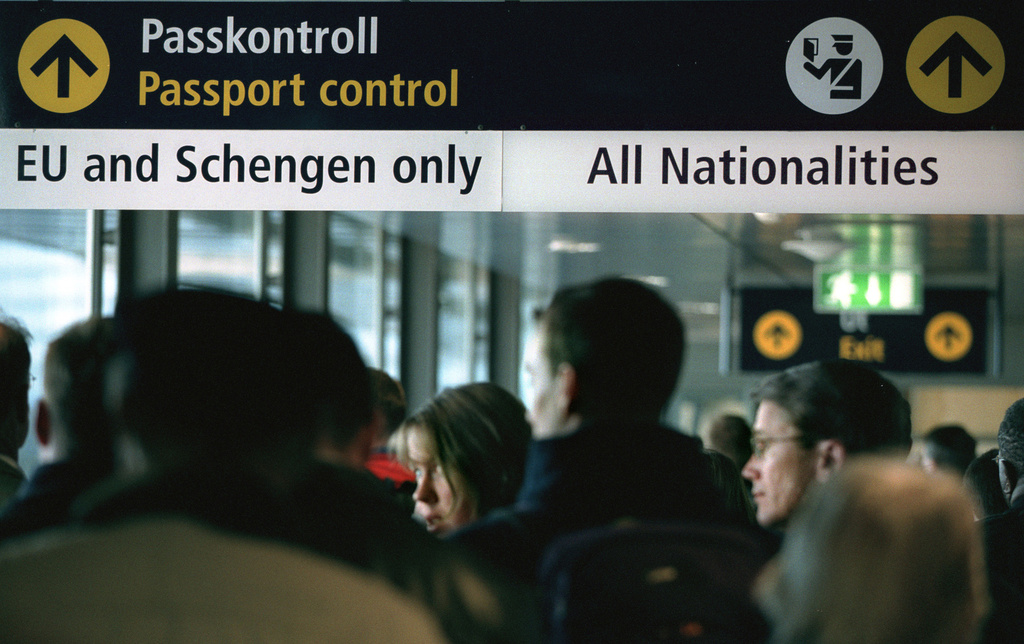
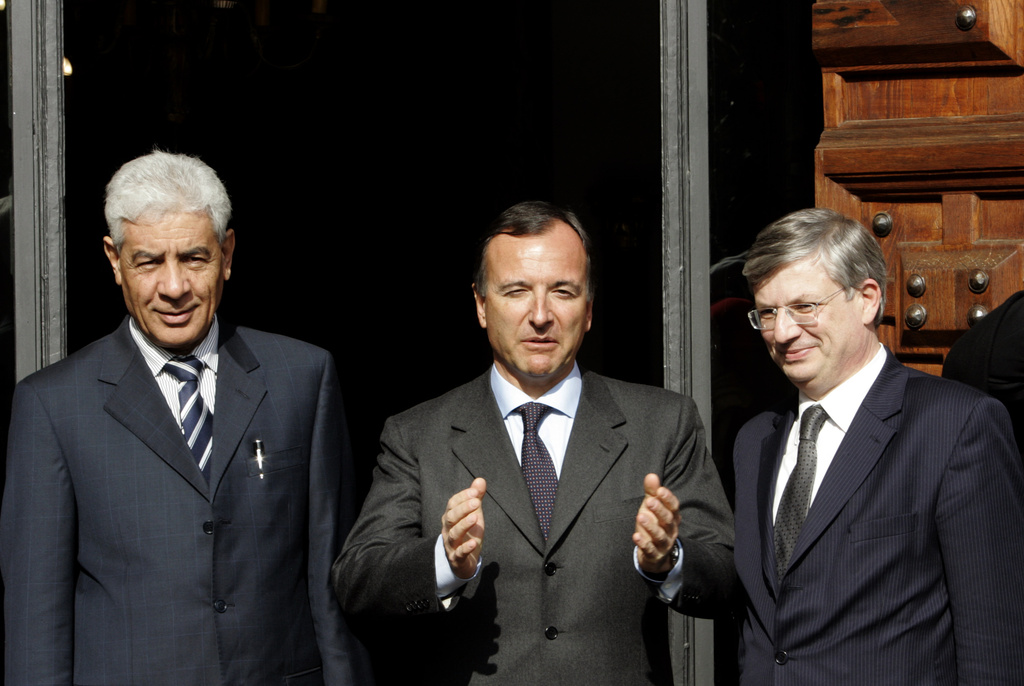
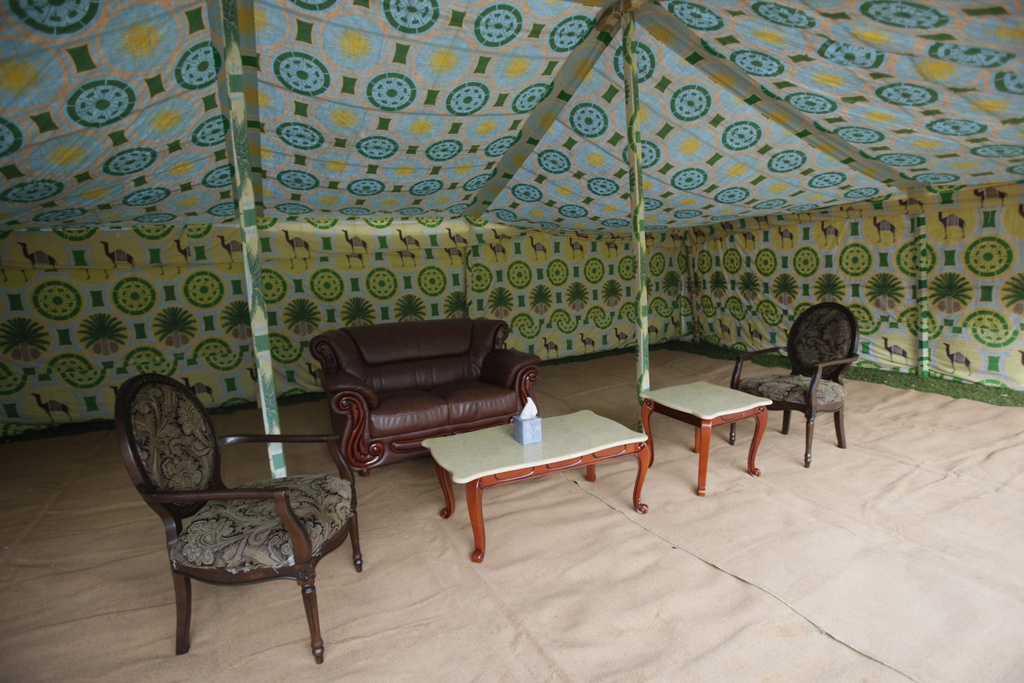
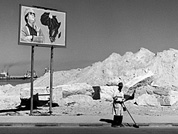
You can find an overview of ongoing debates with our journalists here. Please join us!
If you want to start a conversation about a topic raised in this article or want to report factual errors, email us at english@swissinfo.ch.